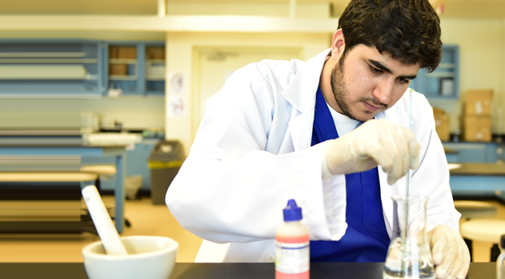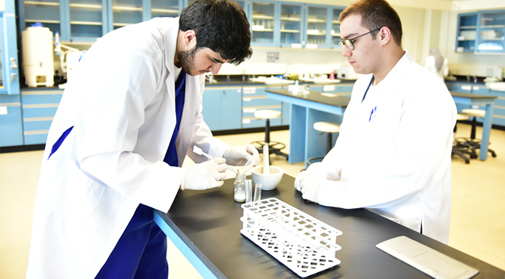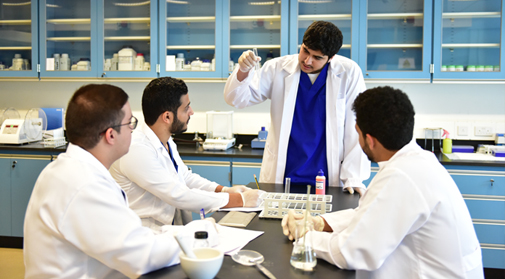Department of Pharmacy Practice
The Department of Pharmacy Practice is committed to develop excellence in the profession through integration of taught courses, and experiential education. Professional practice sessions in COP-Simulation lab will emphasize the practice of communication skills, prescription processing, and patient-centered care. It also supervise introductory and advanced pharmacy practice experiences that are required from phase 3 of the Pharm.D. curriculum. The experience gained will promote the development of cognitive, and decision-making skills that are necessary for the proper practice of pharmacy in a variety of health care environments. Delivered courses include;
- Pharmacy practice and health care systems: This course introduces students to the profession of pharmacy and the diversity of pharmacy-related services that relates to the modern health care system in different settings such as; community, hospital-based.
- Pharmacy regulation and health ethics: This course will introduce the students to pharmacy law and the regulatory aspects applicable to pharmaceutical products and the practice of pharmacy internationally. Students should learn the various laws and regulations in connection with the principal authority that is; Saudi Food and Drug authority (SFDA).
- Medication therapy management is a distinct service that optimize therapeutic outcomes for individual patients. It emphasizes on performing a comprehensive medication therapy review to identify medication-related problems, and to create an individualized therapy plan to resolve them.
- Drug information and evidence-based practice: This course will help the students to build their skills to search, retrieve, interpret, and disseminate drug information in the most efficient and effective manner. They will learn also how the collected data can be summarized into evidence reports and clinical guidelines.
- Patient care and health system management labs: they comprise a set of courses designed to build and reinforce pharmacy practice skills in the provision of patient care and health systems management. During these courses students will participate in practicum and simulation components of the lab, and will learn how to handle prescription, dispense commonly used drugs, perform patient assessment, and implement communication skills in patient counseling.
- Integrated pharmacotherapy “case-based seminars” is a practical application of the knowledge the students acquired from the concomitant integrated pharmacotherapy courses. Case based seminars applies “case-based collaborative learning” which integrate problem-based learning (PBL), with team-based learning (TBL). The students are divided into small groups with the help of the tutor, to work on a case-based scenario that works as a problem they might see in the future.
- Clinical pharmacokinetics: This course involves clinical applications of pharmacokinetic principles. Design of optimized dosing regiments for patient care utilizing drug monitoring techniques and computer technology will be also covered in this course. Case studies with different patient population and with co-morbidities are utilized.




